Tips to Travel Vietnam by Motorbike Safely: Essential Safety Advice
Discovering Vietnam’s breathtaking scenery, energetic cities, and peaceful countryside by motorbike is a thrilling and daring approach. Still, safety should always come first even if it is quite exciting. How therefore can you guarantee a fun and safe motorbike ride? Let MOTOGO Tours dive into some essential tips to help you travel Vietnam by motorbike safely.
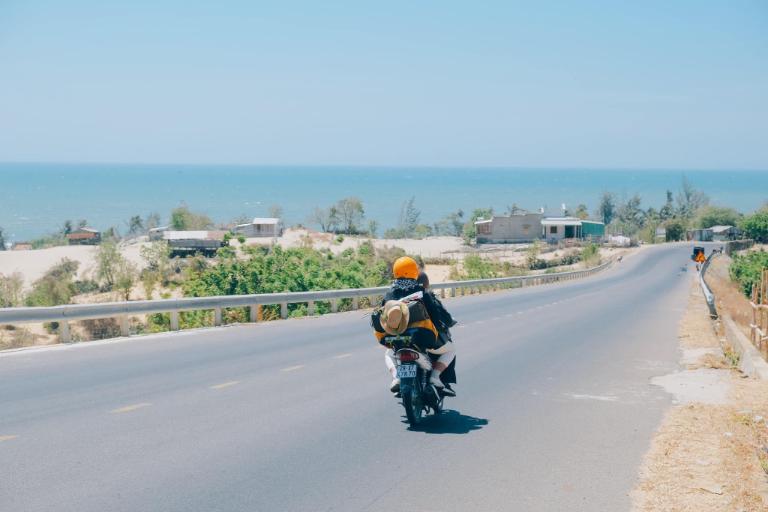
Preparing for Your Motorbike Trip
You should be completely ready for the road before you ever set off. These are the steps:
Choosing the Right Motorbike
Not all motorbikes are made equally, hence selecting the correct one will help to ensure a safe and comfortable ride. If you have never ridden a motorbike, think about leasing one with an automatic transmission since handling is simpler. Before you start your ride, also make sure the motorbike is in good condition—examine the tires, brakes, lights, and oil levels.
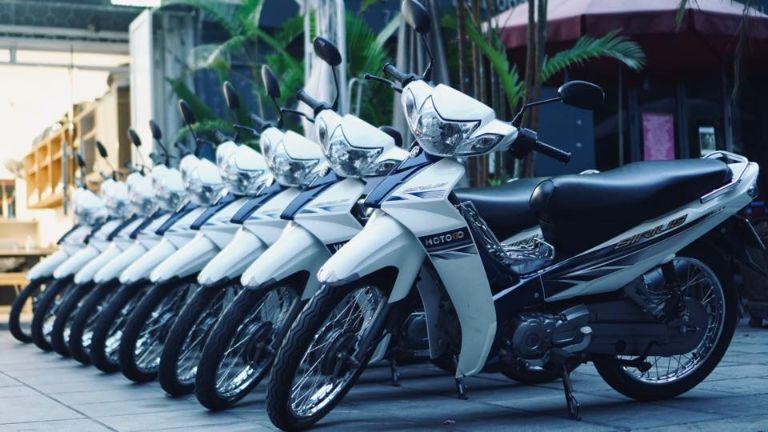
Essential Gear and Equipment
Riding in Vietnam does not allow negotiable safety gear. Always wear a helmet—it’s required—and make investments in protective gear including gloves, coats, and robust shoes. If you will be on a lengthy trip, a strong backpack is really necessary to securely carry your stuff.
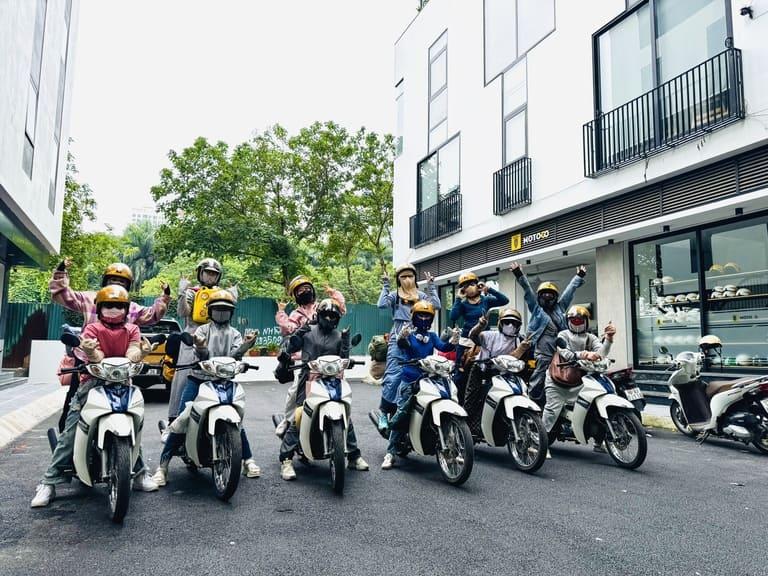
Understanding Vietnam’s Road Conditions
Roads in Vietnam can range widely. Cities will show you limited lanes and significant traffic. On remote roads, count for potholes, loose gravel, and erratic weather. Acquiring knowledge of these disorders will enable you to negotiate more boldly.
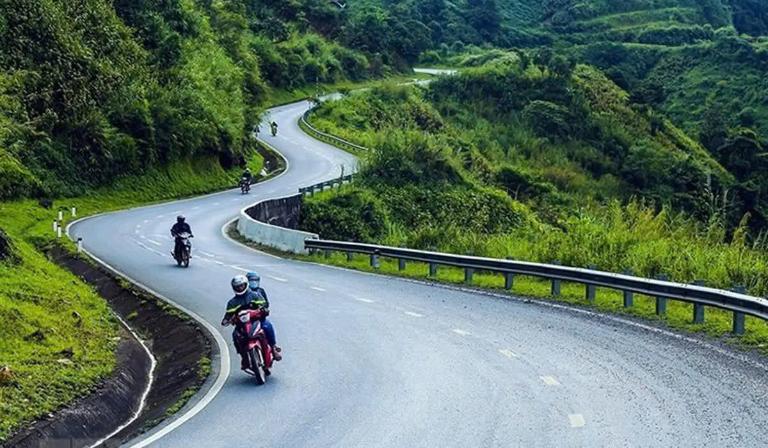
Planning Your Route
Mapping Out Safe Routes
Although Vietnam presents a lot of picturesque paths, not all of them are safe for motorbike riding. Look for well-paved roads and steer clear of regions with lots of traffic to ahead your path. Though always verify the traffic conditions, apps like Google Maps can assist you in determining the safest routes.
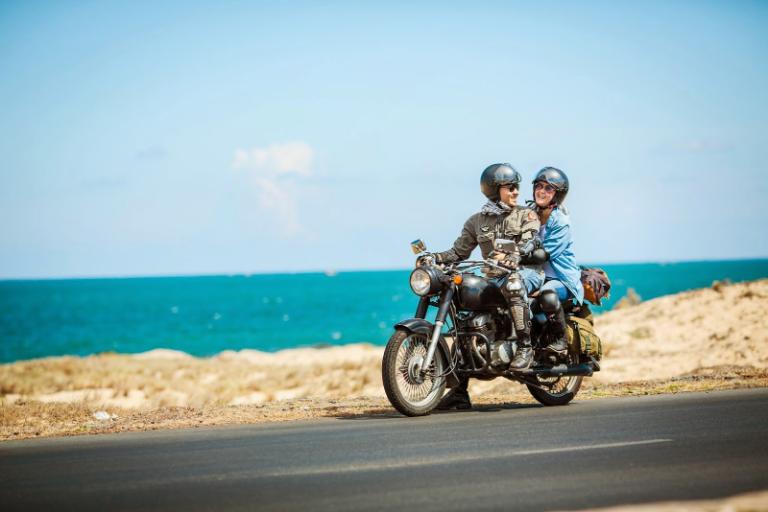
How to Stay on Track
Although mobile apps and GPS gadgets have great value, do not rely just on them. Make sure you backup with a physical map. Remote regions can easily cause one to get lost; so, always know your next stop to check your position.
Avoiding Dangerous Areas
Some places, particularly rural roads, might not be fit for motorbike travel because of isolation or difficult terrain. If you’re not familiar with a road, think about asking residents or fellow visitors about state of affairs. Riding at night is best avoided since view can be limited.
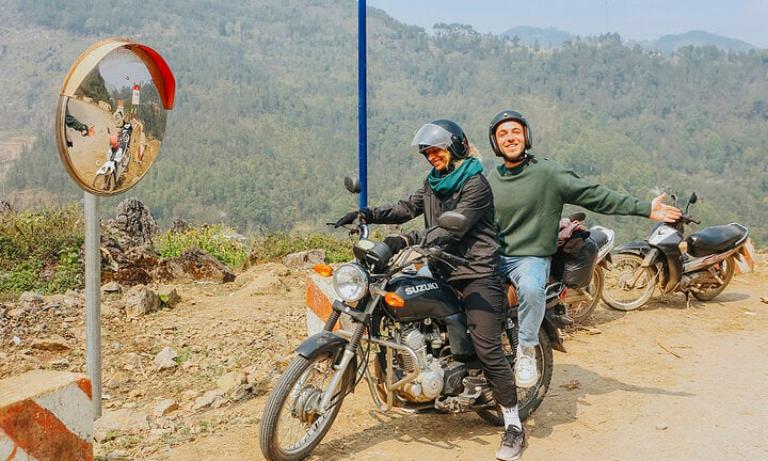
Motorbike Safety Tips
- Wear Proper Protective Gear: Never ride without your helmet. The traffic in Vietnam is erratic, hence a helmet can literally save your life. Long pants, gloves, and a jacket also help shield you from the elements and any possible mishaps.
- Helmet Laws in Vietnam: Strict helmet rules apply in Vietnam; riding without one will result in a fine. Not risk it; make sure your helmet satisfies safety criteria and fits well.
- Riding with Caution in Traffic: City traffic in Ho Chi Minh City and Hanoi may be somewhat heavy. The secret is to remain collected and ride defensively. Look around you; signal with your horn; never assume other cars will yield to you.
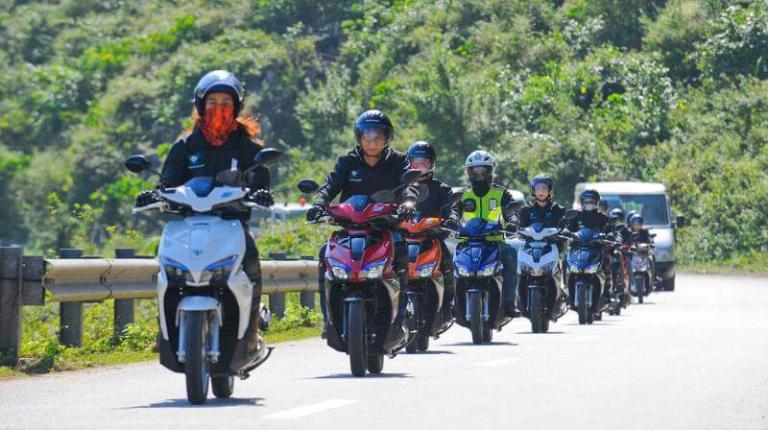
>>> Explore: Proper Cornering Technique for Safer Driving
Navigating Vietnam’s Roads
- The Importance of Defensive Riding: Driving customs in Vietnam might be erratic. Always be ready for other drivers’ unplanned behavior. Stay away from vehicles in a safe distance; do not weave between lanes..
- Dealing with Unpredictable Traffic: Vietnam’s highways are humming with activity from motorbikes to busses and pedestrians. Never haste; stay vigilant. Decelerate while approaching pedestrian crossings or crowded junctions.
- Handling Different Types of Roads: While in rural areas you will find dirt roads, twisting slopes, and uneven surfaces, in city highways sometimes are crowded. Change your riding approach according on the state of the road. slowing down on a gravel road will help you to prevent slipping.
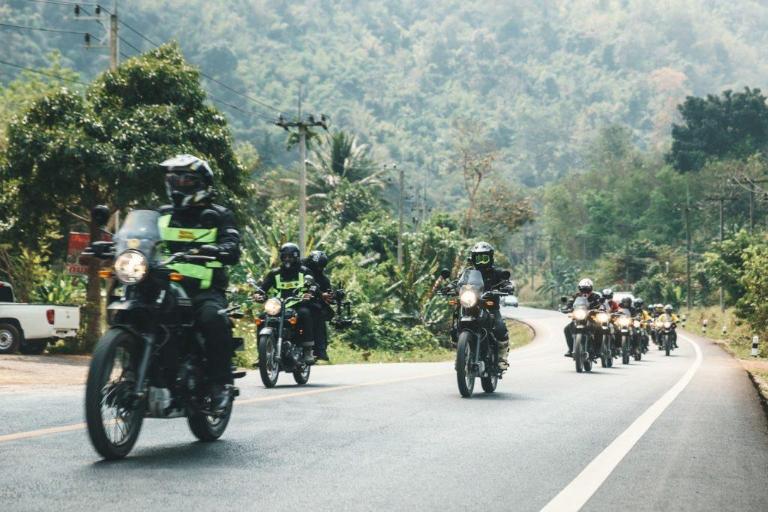
Common Hazards to Watch Out For
- Weather Conditions and Their Impact: Particularly in the mountains, Vietnam’s harsh weather can have an impact on visibility and road conditions by means of heavy rain, fog, and high temperatures. Before leaving, always review the weather forecast; also, be ready to adjust to new circumstances.
- Road Maintenance and Potholes: Common hazards in both urban and rural regions are potholes. Watch the road ahead and try not to swive suddenly. Road conditions in rural locations might vary suddenly, hence be alert.
- Animals and Pedestrians on the Road: Animals like cows and dogs sometimes stray into the road in more outlying regions. Should you spot them approaching, always be prepared to stop or slow down. Pedestrians also often cross roads without warning, hence slow down when you go to local towns.
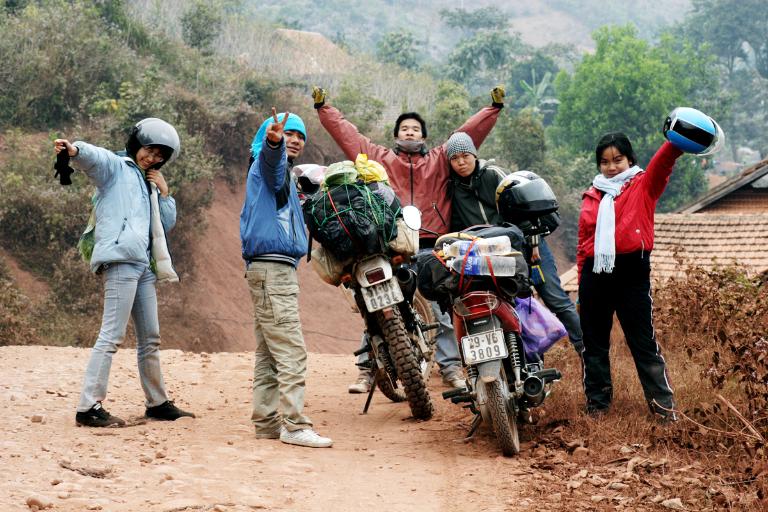
Traffic Rules and Regulations
Understanding Local Traffic Laws
Though they vary by area, Vietnam’s traffic rules are like those of several other Southeast Asian nations. Familiarize yourself with local rules, particularly with relation to road signs and speed limits. You must wear a helmet; riding calls for a current driver’s license.
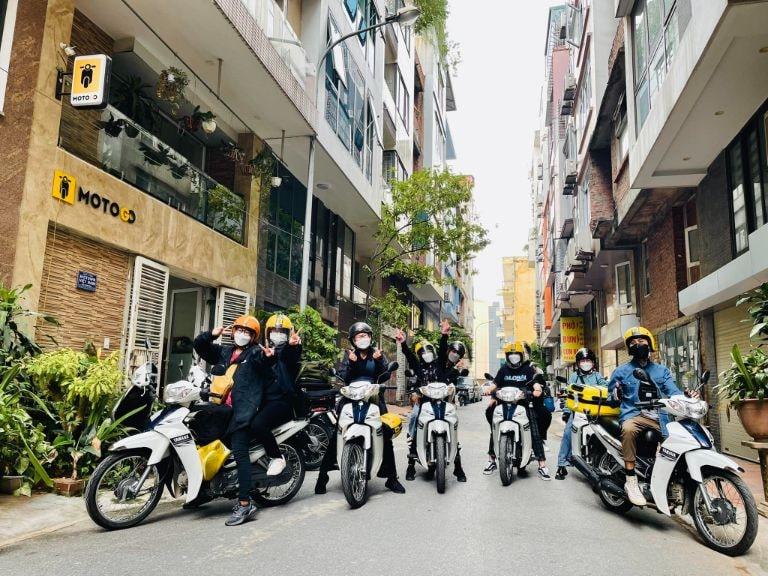
>>> Road Rules for Motorbiking in Vietnam You Should Know
Speed Limits and Road Signs
In some places of Vietnam, speed restrictions can be vague. While in rural places speeds might be greater but roads may be less predictable, in metropolitan areas it is usually safe to keep a modest speed. Look at any posted road signs noting road hazards, speed restrictions, or other pertinent information.
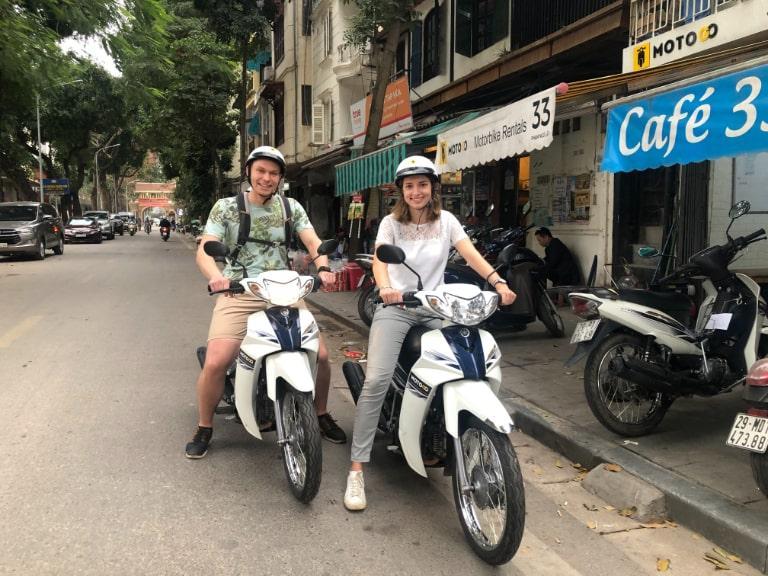
Traffic Police and What to Expect
Particularly in bigger cities, police checks are not unusual. Should you be stopped, remain composed and be ready with your paperwork. To stay out of fines, one should be kind and obey their directions.
Dealing with Accidents
What to Do if You Are Involved in an Accident
Should an accident unfortunately arise, your first concern should be situational assessment. See medical assistance right away whether you or someone else is hurt. Call the police to make sure you have all the required information—that of the other party as well as any insurance information.
Getting Medical Help
Vietnam boasts many hospitals and clinics should you want medical help. While many big cities have international hospitals staffed in English, in rural places medical services could be rudimentary. Always have a list of emergency contacts and find out where the closest hospital is.
Insurance Coverage and Liability
Make sure your insurance covers mishaps whether riding a motorbike in Vietnam. Although many rental companies provide insurance bundles, it’s important to carefully review the fine print to be sure exactly what is covered should an emergency arise.
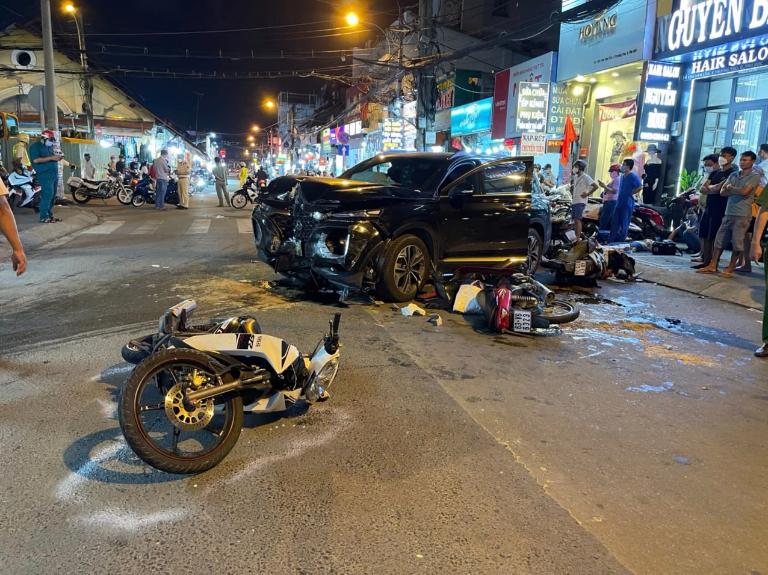
>>> Best Time for Motorbike Tour in Vietnam: Ultimate Travel Guide
Health Considerations
- Hydration and Food Safety: Vietnam’s high heat and humidity make staying hydrated vital. Stow a water bottle and steer clear of tap water. Stay with bottled water and consider food cleanliness when dining from street sellers.
- Dealing with the Heat and Exhaustion: Particularly on extended rides, the tropical environment can cause heat fatigue. Take frequent rests; locate cover when needed; and dress in light, breathable clothing.
- First Aid Tips for Motorbike Travelers: Always a smart idea is to have a basic first-aid pack. It should comprise bandages, antiseptic, painkillers, and any personal meds you might need.
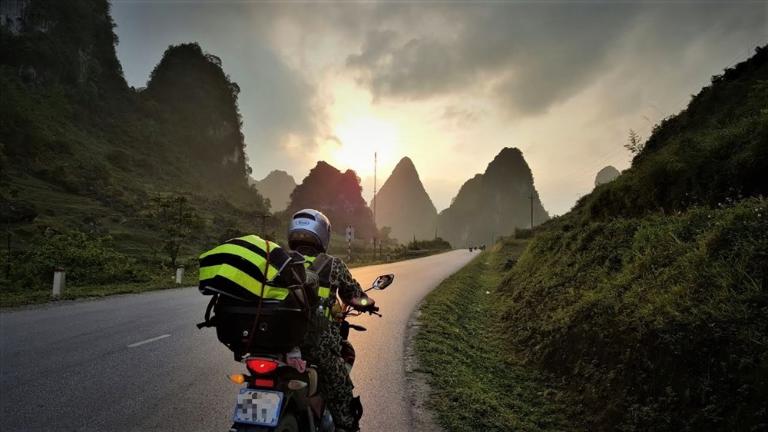
Tips for Solo Travelers travel Vietnam by motorbike safely
- Safety When Riding Alone: Though it has its own set of difficulties, traveling alone can be quite the adventure. Tell someone near to you your route and expected arrival times always. In an emergency, having a local SIM card for simple communication and map access might literally save lives.
- Keeping in Touch with Family and Friends: Tell your loved ones where you are, particularly in rural locations. Regular visits to them will help to keep everyone informed about your intentions.
- Finding Reliable Accommodation: Finding dependable lodging is especially important for single travelers to guarantee safety. Ask locals or fellow visitors for recommendations; research well-reviewed homestays or guesthouses without delay.
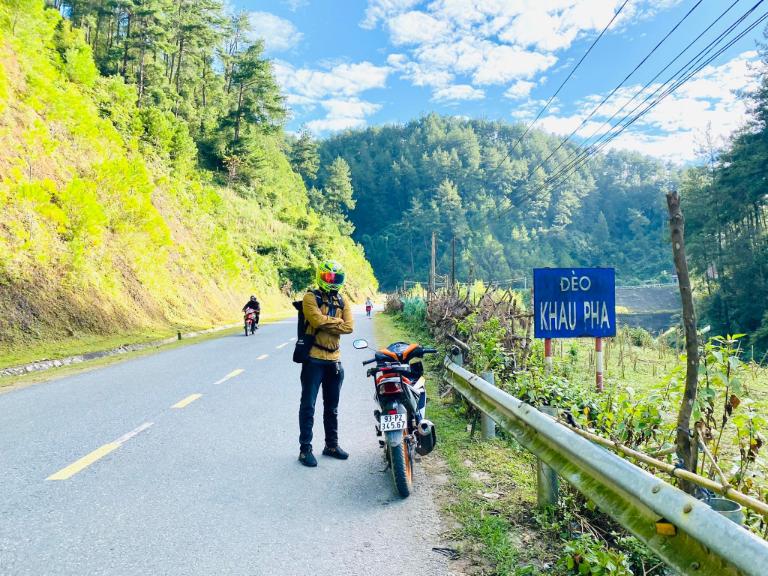
Group Riding Tips
- Riding in Groups and Staying Together: Riding as a group has a safety benefit as well as company. Keep together to ensure everyone understands the riding pace and stops of the group. Riding in pairs or a staggered formation is a good general guideline to prevent mishaps.
- How to Communicate Effectively: Key in group riding is effective communication. If riding with a guide, be sure you know the hand signals or other means of communication to let the group know of approaching curves, hazards, or stops.
- Group Riding Etiquette: Treat other group members kindly. Steer clear of cutting in front of other cyclists, retain your posture, and let others know if your plans alter to help to keep the ride flawless and fun for everybody.
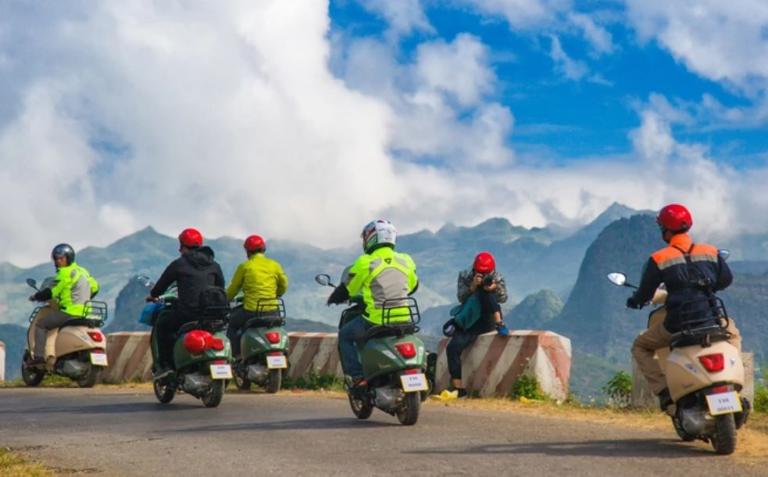
Cultural Etiquette for Motorbike Travelers
- Respecting Local Customs and Traditions: Vietnamese society boasts a great abundance of values and customs. Treat the nearby towns and villages with respect. Before photographing individuals, particularly in rural regions, always seek permission; also, keep humble when visiting temples or other cultural sites.
- Learning Basic Vietnamese Phrases: Knowing a few basic Vietnamese phrases will help you greatly respect the people living here. Simple pleasantries like “Xin chào,” or “Cảm ơn,” will help to establish rapport and smooth out exchanges.
- Being Mindful of Local Communities: Even while riding a motorbike gives a lot of freedom, always be aware of the surroundings and the local areas you pass by. Steer clear of loud noises and value the peace in small towns. Always treat garbage carefully.
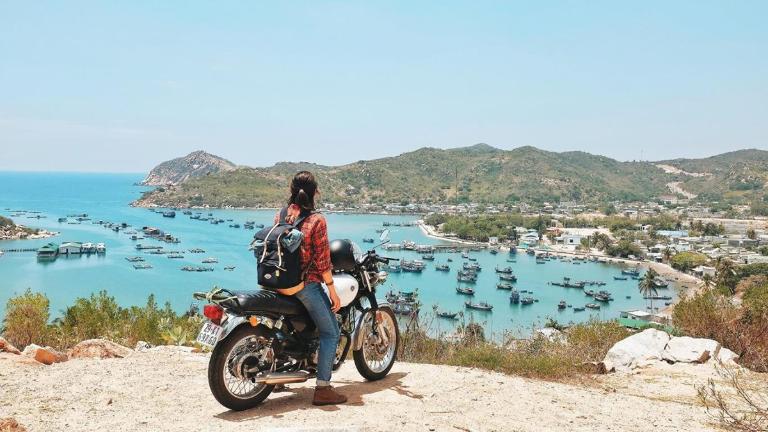
By following these safety tips to travel Vietnam by motorbike safely, you’ll ensure a safe and unforgettable adventure. Always keep your safety first and respect the local way of life whether you’re riding on the busy streets of Hanoi or down the calm lanes of the northern mountains. Vietnam presents an amazing trip; with the correct attitude, you may maximize enjoyment of the ride and reduce hazards.
Related Posts:






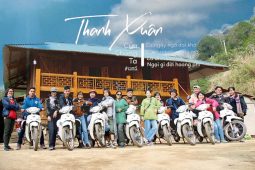
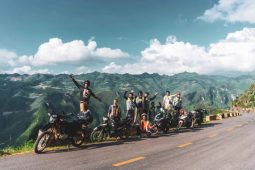
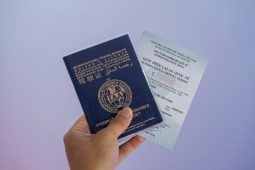


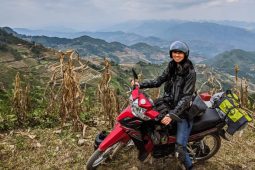

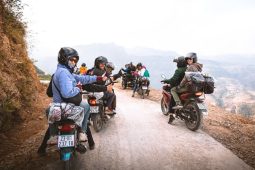
Be the first to comment!